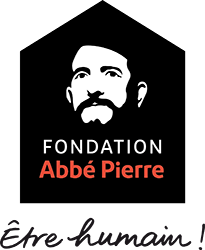Spain’s Public Safety Act for “citizen security”, passed on Friday 20 March 2015, in fact violates human rights
The new law not only discourages and represses peaceful protest for the right to housing, but also criminalizes homelessness, making life for very vulnerable people even more difficult. Four years of austerity have increased poverty, deepened inequality and caused serious deterioration of economic and social rights in Spain (CESR, 20141 ). As factsheet by the CESR charts the impact of rising unemployment and undersupplied social housing on the right to housing. There has been a significant increase in the number of homeless people in Spain. Legislative efforts to assist those homeowners who can no longer afford their housing costs to avoid foreclosure have been weak and incoherent and the supply of social rental housing (only 2% of housing stock in Spain) is starkly insufficient (CECODHAS, 2012). Such a situation is not sustainable and poses a significant threat to the right to adequate housing for the most disadvantaged groups (CESR, 2014)2 . Human Rights Watch also published submission for Spain’s Universal Periodic Review submission before the UN in 2014, pointing to issues with Spain’s compliance with its international human rights obligations. For example, since the economic crisis began in 2007, banks have foreclosed on over 500,000 properties under a procedure that leaves individuals and families saddled with significant debt and no realistic pathway towards discharging their debt. Immigrants, women heads of households, women victims of economic abuse, and children are among the vulnerable groups affected by the crisis. Irresponsible lending, unfair terms in mortgage contracts (such as exorbitant default interest rates), unscrupulous behaviour by intermediaries such as real estate agencies, and the lack of oversight during the boom economic years contributed to the current situation (Human Rights Watch, 20153 ). The government of Prime Minister Mariano Rajoy has taken steps to address the mortgage crisis, including measures to protect temporarily certain groups against evictions; amend legal proceedings to ensure the right to contest unfair contractual obligations; and provide guidelines for debt relief and, in some circumstances, debt cancellation. The government created a Social Housing Fund, stocked by roughly 6,000 properties that banks have voluntarily turned over, to offer evicted families places to live at affordable rents (UPR, 2015). However, the criteria for benefitting from these measures are narrowly drawn, excluding many needy families and individuals. Some of the criteria are arbitrary and do not comply with international law4 . Official data demonstrate that the measures to alleviate debt and provide affordable housing through the Social Housing Fund have benefited only a fraction of those in need. (UPR, 2015)5
The inability of authorities to respond to the needs of society and accept critics and proposals to address the situation resulted in massive demonstrations and protests. In May 2011, a new wave of mobilizations gathered citizens in the streets to demand political participation and discuss the changes they want in society. This developed into non-partisan, extra-institutional and horizontal movements, which for three years has continued to work to provide a platform for citizenship and solidarity (Cuarto Poder, 2014). Now, in a new attempt to ignore the claims of society, the government has adopted two significant legislative reforms - of the Public Safety Act and the Criminal Code –designed to discourage, repress and criminalize peaceful protest and the exercise of human rights6 . Spanish evictions generated a social movement that resulted in the Platform of People Affected by Mortgages (Plataforma de Afectados por la Hipoteca, PAH). The PAH originally emerged in Barcelona in 2009, with the aim of modifying mortgage legislation to allow mortgage debt forgiveness after eviction. In addition to driving a campaign for retroactive non-recourse debt, the PAH aimed to achieve the self-organisation of those affected7 . The PAH is a political movement (but not linked to a political party) in which people directly affected by the mortgage crisis and those indirectly affected by it, fight together against this problem. In order to empower people and promote legal changes, the PAH takes actions in many different fields (political, legal, communicative, emotional, etc.). They also propose solutions in order to enact our right to housing8 . The PAH uses several strategies -to fight for the right to housing: The Stop Evictions campaign ( to prevent families from being evicted from the only place they have to live, their homes), Obra Social campaign (the freeing up of empty houses held by financial institutions in order to relocate families that have been evicted or have lost their home to the bank and have nowhere to go), the People’s Legislative Initiative (ILP) campaign (it was a legislative proposal advanced by the PAH with the collaboration of various social movements and other organizations in order to change Spain’s foreclosure law) and the Escrache campaign (meant to persuade politicians and other people in positions of power to take into account the public’s petitions). In the lack of an effective response of the Government, the PAH is today the most important referent for the right to housing in Spain. All of the PAH’s strategies have been criminalised in the new Public Safety Act for “citizen security” and are now considered as illegal or even as terrorism. The new law attacks the right to housing by not only prohibiting its defence and the fight against evictions, but also by stigmatising and sanctioning homeless people.
The Public Safety Act passed at the end of March 2015 is designed to control citizen behaviour through very high financial penalties (between 100 and 60,000 Euros). There are several sections that affect homeless people or people who spend a great part of their lives on the street. Imposing financial penalties on those who have no or very little income, can be clearly interpreted as a criminalization of poverty. Examples:
- Article 37.13 of the new Spanish Public Safety Act sanctions persons who spoil or damage public or private property by ruining its image. The article introduces a vague legal concept: The term “deslucimiento” means creating shabbiness, dullness, gracelessness or discrediting. Several human rights organizations are concerned that the presence of a homeless person sleeping on a bench or sitting in a corner can be interpreted as diminishing the esthetical value of the place, bench or corner or causing a reaction of disgust to others and will therefore be considered a transgression of article 37.13 which carries a possible sanction of 100 to 600 Euro. In many cities and towns in Spain hundreds of migrants survive through their street vending activities.
- Article 37.7 of the new Spanish Public Safety Act penalizes the occupation of public and private property and of public space. According to this article, unauthorized hawking can be sanctioned.
- Article 37.11 of the Public Safety Act will punish those who lose their national identity papers three times in one year. A sanction of 10 Euros might be symbolic for people with stable revenues, but this sum is significant and or even impossible for homeless people, for whom keeping their documentation in order is very complicated as they don’t have a home to organize their belongings. Sanctions on prostitution or drug consumption on the streets are two other examples of how state policies of criminalization routinely penalize people for their involuntary status.
- Article 36.11 contemplates offering sexual services as a serious infraction. Entities such as the Platform of the Third Sector and the Spanish Network Against Trafficking warn about the proven ineffectiveness of sanctioning prostitution.
- Article 36.17 penalizes people who are using drugs on the street. The possibility of suspending the sanction for using of drugs, if the person proves to be in rehabilitation treatment has been eliminated. The majority of the political parties in Spain as well as social organizations working with people with addictions consider this a step back have and a terrible mistake.
Local authorities have already started to adapt their regulations to the new Public Safety Act. It is important to recall that, as administrative offenses, and since two years, if we disagree with the sanction, and after payment of a fine, also we have to pay a justice tax. This makes it very difficult for many people to access justice. Several platforms and associations in Spain such as Caritas, reject the penalization of vulnerable people through economic sanctions (up to 30,000 Euro). Criminalization of homelessness is discriminatory and constitutes cruel, inhuman, and degrading treatment (UN human Rights Committee, 2013).




